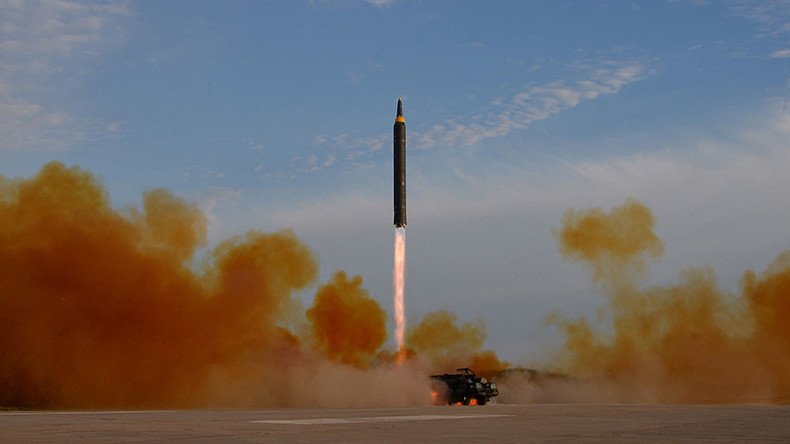‘New global threat’: IAEA anxious over ‘rapid progress’ of N. Korean nuclear program

North Korea's nuclear weapons program demonstrates “rapid progress” and poses a “new global threat” to international security, the head of the International Atomic Energy Agency (IAEA) has said following the sixth nuclear test by Pyongyang earlier this month.
On September 3 Pyongyang conducted its sixth and most powerful nuclear test yet, using a hydrogen bomb that was allegedly small enough to be mounted on a ballistic missile. The blast was so potent that it registered as a 5.6 magnitude earthquake.
“(The) yield is much bigger than the previous test, and it means North Korea made very rapid progress,” International IAEA Director Yukiya Amano told reporters in Seoul, after a meeting with South Korean Foreign Minister Kang Kyung-wha.
“Combined with other elements, this is a new threat and this is a global threat,” he added referring to the development of North Korean ballistic missile rockets.
The Korea Meteorological Administration estimated that the sixth nuclear test yielded the energy of at least 50-60 kilotons. China said the explosion produced a yield of 108.3±48.1kt. In comparison, North Korea’s fifth test in September 2016 yield was estimated between 15 to 25 kt, a rough equivalent of the American 'Fat Man', which was the second of the only two nuclear bombs ever used in warfare thus far.
“It is difficult to judge whether it is a hydrogen bomb experiment or not,” Amano said. “The most important thing now is for the international community to unite to solve this serious threat.”
The nuclear watchdog chief said that the crisis should be resolved through a UN framework but emphasized that his agency is willing to “play a role” in defusing the new threat.
Tensions have rapidly escalated amid the ongoing and increasingly aggressive rhetoric between Pyongyang and Washington.
'It will be devastating': US is prepared to use military force against #NKoreahttps://t.co/ewHFth9rmT
— RT (@RT_com) September 27, 2017
While the US and its regional allies have thus far pursued the diplomatic route, President Donald Trump has on a number of occasions threatened to resolve the North Korean question militarily, if necessary. The latest threat came on Wednesday when Trump promised “devastating” consequences for North Korea should the US choose military option.
READ MORE: 70% of Americans disapprove of Trump’s rhetoric towards North Korea - poll
North Korean leader Kim Jong-un earlier vowed to “tame” Trump “with fire,” while on Thursday, North Korean news agency KCNA reported that 4.7 million Korean civilians have expressed a readiness to defend to death their country from American imperialism.
While Moscow and Beijing have been urging Washington and Pyongyang to avoid escalating tensions and pursue diplomacy and dialogue, Washington has swiftly rejected the Sino-Russian “double freeze” initiative which urges the United States to cease its drills with South Korea in exchange for the North suspending its nuclear weapons programs.













